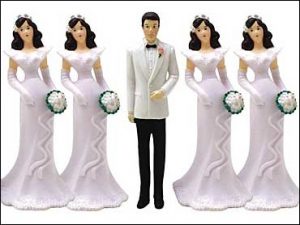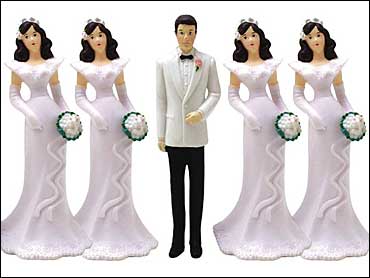By Karen Aney (Contributer) – Email
 Bountiful, BC has been popping up in headlines with alarming frequency lately. The most recent was in The Vancouver Sun’s February 26 issue, where the front page article described the abduction of two minors (and six other women) across the Canada-USA border for marriage to men in the town. Now, don’t get me wrong: abduction? Not cool. Dalliances with minors? Not ok. But pedophilia and abduction are not being discussed in these articles: the ‘crime’ of polygamy is. If polygamy wasn’t forced to be a marginalized practice – if these families weren’t forced to live outside the realms of the law – these minors would be offered all the same opportunities and protections as a typical high school girl. So why do we think it’s ok to force them to live in secrecy?
Bountiful, BC has been popping up in headlines with alarming frequency lately. The most recent was in The Vancouver Sun’s February 26 issue, where the front page article described the abduction of two minors (and six other women) across the Canada-USA border for marriage to men in the town. Now, don’t get me wrong: abduction? Not cool. Dalliances with minors? Not ok. But pedophilia and abduction are not being discussed in these articles: the ‘crime’ of polygamy is. If polygamy wasn’t forced to be a marginalized practice – if these families weren’t forced to live outside the realms of the law – these minors would be offered all the same opportunities and protections as a typical high school girl. So why do we think it’s ok to force them to live in secrecy?
Our Charter of Rights and Freedoms grants us freedom of religion. Polygamy is, fundamentally, religious – but not just Mormon (as we’ve come to know it). Both polygyny (many wives) and polyandry – when one wife has multiple husbands – have been practiced throughout the world and in many different religions. Buddhism, Judaism, Hinduism, even Christianity have parts of their histories that involve plural marriage. Don’t hate the messenger, Christians – read Der Beichtrat, a document from the Protestant Reformation. It specifically allows plural marriage. So, this isn’t just one wacky religion practicing one wacky part of their holy book; it’s a rich part of world history.
In essence, is this debate any different from that of homosexual marriage? My answer to that hot-button topic is the same: who cares? If our country spent half as much time worrying about arts and sciences as it did protesting other peoples’ loving relationships, we’d have a rich culture indeed. If two men love each other so much that they’re willing to brave public scorn to be together, power to them; how many heterosexual relationships could hold up to that strain? If three or more people love each other so much that they’re willing to brave public scorn to be together, more power to them as well.
Plural parenthood seems like it could only be beneficial to its offspring. As children are so expensive to raise, polygamy could provide relief to federal and provincial financial assistance programs. For example, if there is one husband and two wives, two adults can work while the third provides childcare. As an alternative, all three adults could work varying shifts: if two-parent families make it work, I’m sure three or more can. Just to make sure every group possible is offended by this article: given the choice between placing a child in the care of three capable adults and one capable adult, would any logical person place said child with the single parent? That isn’t to say that single parents aren’t able to raise their children properly, or that they love their children any less. But given logical considerations, polygamy is an economically responsible choice – especially given the struggling economy.
A final beneficial aspect of polygamous relationships is the fulfilling nature of the relationship for the adults involved. Plural marriage gives the individuals the opportunity to pursue their own interests apart from their spouse without leaving them lonely or their children uncared for. This, again, can only be beneficial: one mother has time to take an advanced first aid course, a second mother takes some lessons in basic mechanics, a father learns to knit – the possibilities are endless.
Next time you judge polygamous relationships, pause to think before you fall from your high horse: pedophilia occurs in two-person relationships. Financial aid is abused by citizens of all ages and marital status. Women can be marginalized in every culture and type of relationship. When it comes down to it, polygamy is simply a representation of people loving each other. So who cares?


